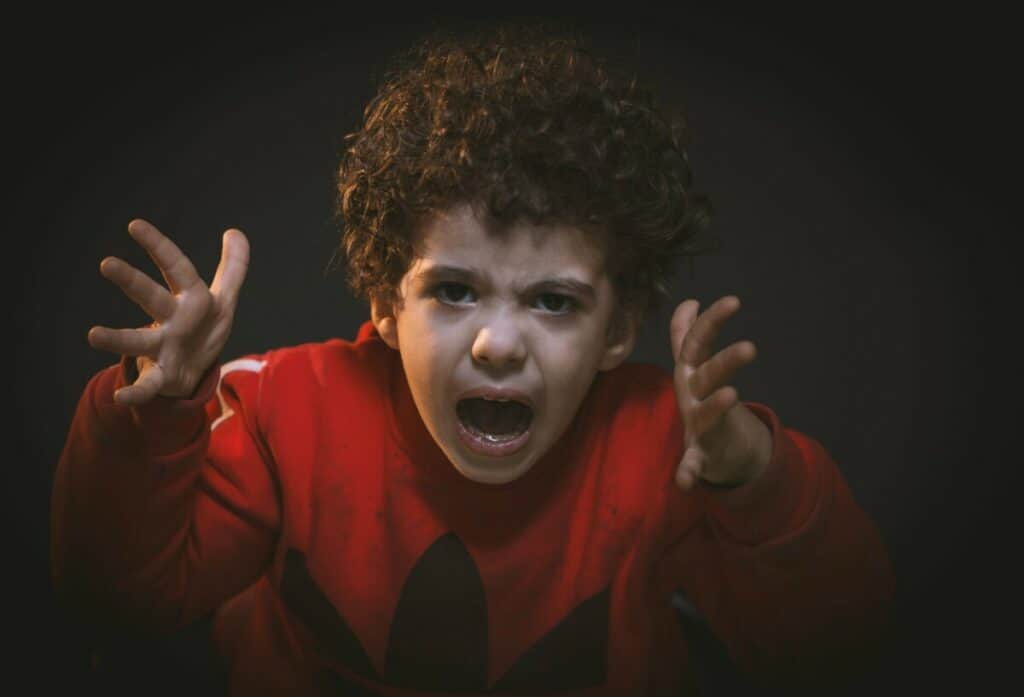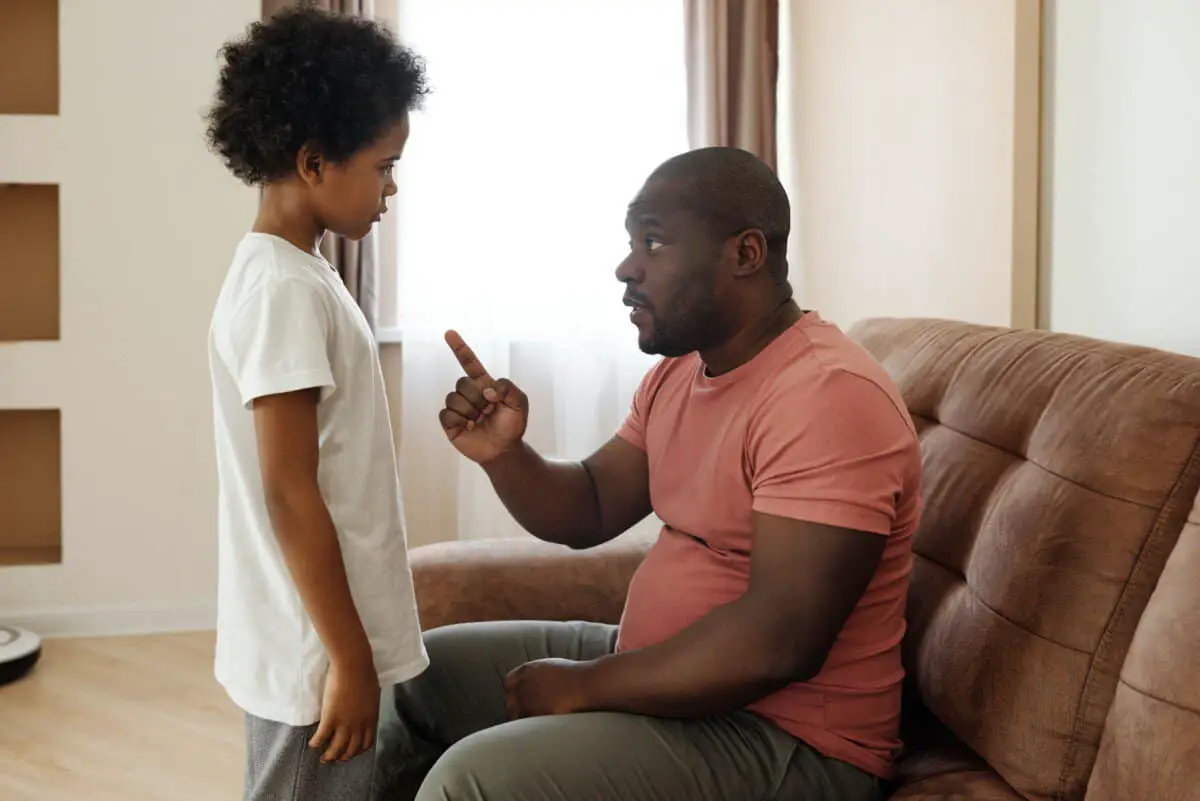[toc]
How to Discipline a Child With BPD. So your child has been diagnosed with borderline personality disorder (BPD). What now? How do you go about disciplining them effectively? This can be a daunting task, as BPD can make children incredibly defiant and impulsive. However, some techniques can help you manage their behavior. This post will explore some of the best ways to discipline a child with BPD.

What is BPD in Children
Borderline Personality Disorder (BPD) is a mental illness characterized by instability in moods, behaviors, self-image, and functioning. Individuals with BPD often have difficulty regulating their emotions and may experience extreme mood swings, making it hard to maintain healthy relationships. They may also engage in impulsive and risky behaviors, such as substance abuse, unsafe sex, and self-harm.
BPD typically develops during adolescence or young adulthood, more common in women than men. While there is no cure for BPD, treatment can help manage symptoms and improve functioning. If you think your child may be exhibiting signs of BPD, it is essential to seek professional help, and early intervention can make a big difference in the course of the disorder.
Symptoms of Children With BPD
Impulsivity
Impulsivity is a common symptom of borderline personality disorder (BPD) children. Individuals with BPD often act without thinking, leading to risky behaviors such as unsafe sex, drug use, and impulsive spending. This impulsivity can also manifest as self-destructive behaviors, such as cutting or burning oneself. While some impulsivity is normal in children and adolescents, the impulsivity associated with BPD is excessive and persistent. It often leads to problems in relationships and school or work performance.
Rage and anger
Rage and anger are common symptoms of borderline personality disorder (BPD). Even minor frustrations can trigger these outbursts, and they can be accompanied by destructive behaviors, such as hitting, throwing things, or breaking property. While rage and anger are normal emotions that everyone experiences from time to time, children with BPD often have difficulty controlling their outbursts. As a result, they may act out in potentially harmful ways to themselves or others.
Self-harm
Though self-harm is often associated with mental disorders such as depression and anxiety, it can also be a symptom of borderline personality disorder (BPD). Children with BPD often feel misunderstood and unsupported, leading to a sense of isolation and despair. In addition, they may have difficulty regulating their emotions, leading to outbursts of anger or sadness. Self-harm can be a way of numbing these intense emotions or expressING them in a safe outlet. Unfortunately, self-harm can also become addictive, making it difficult for children with BPD to break the cycle.
Risky behaviors
Many children with borderline personality disorder (BPD) engage in risky behaviors. This may include self-harm drug abuse, reckless driving, and unprotected sex. While these behaviors vary, they often stem from a need to cope with overwhelming emotions. For example, a child who is feeling overwhelmed by feelings of sadness and loneliness may turn to self-harm to numb their pain.
Similarly, a child who is feeling rejected or unsupported may engage in risky sexual behavior to seek validation and attention. While these behaviors may provide temporary relief, they can also lead to long-term consequences. For example, self-harm can lead to permanent scars, and drug abuse can lead to addiction.
Chronic feelings of emptiness
Children with borderline personality disorder may often feel empty inside, and this chronic feeling of emptiness can interfere with their ability to form and maintain close relationships. It can also lead to impulsive and self-destructive behaviors, such as drug abuse, self-injury, and eating disorders.
Dissociation and paranoia
Children with borderline personality disorder often experience dissociation and paranoia. Dissociation is a mental process where a person disconnects from their surroundings and reality. This can manifest as spacey behavior, feeling out of the body, or dissociative amnesia.
Paranoia is another common symptom in children with BPD. They may have paranoid thoughts, delusions, or hallucinations. This can result from the child constantly feeling under threat or feeling like they are being watched. These symptoms can be highly distressing for the child and make it hard for them to function in everyday life.
Unstable relationships
Children with BPD often have difficulty forming and maintaining stable relationships. This can be due to several factors, including impulsivity, difficulty regulating emotions, and a fear of abandonment. As a result, children with BPD may act out in relationships, engaging in self-destructive behaviors or lashing out at others. They may also have a hard time trusting others, making it difficult to form close attachments.
How to Discipline a Child With BPD
Explain the need for rules and expectations
It’s essential to have rules and expectations when disciplining a child with BPD. These help provide structure and consistency, which can be very helpful for a child who may feel overwhelmed or out of control. Rules also help set clear boundaries so that a child knows what is and isn’t acceptable behavior.
Expectations should be realistic and achievable so that a child doesn’t feel like they’re constantly falling short. Punishments should be proportional to the offense, and should always be delivered calmly and consistently. With time and patience, these strategies can help a child with BPD to develop self-control and learn how to manage their behavior more positively.
Use short, consistent, and immediate consequences
Consistency is vital for discipline, especially for children with BPD. Because their emotions are so intense, they tend to have strong reactions to even small changes in their routine. As a result, it’s essential to be clear and consistent with expectations and consequences.
For example, if a child with BPD throws a tantrum, the consequence should be immediate and consistent each time it happens. Otherwise, the child will learn that they can get away with the behavior occasionally. While it may be tempting to give in to a child’s demands during a tantrum, it will only reinforce the behavior. Short, consistent, and immediate consequences are the best way to discipline a child with BPD.
Be aware of your own emotions
Being emotionally aware is one of the most critical skills a person can have. And nowhere is this more true than when it comes to parenting a child with borderline personality disorder (BPD). Children with BPD are susceptible and react strongly to minor emotional triggers. As a result, they often act out in destructive ways, both to themselves and those around them. When disciplining a child with BPD, it’s essential to be aware of your own emotions.
If you’re angry or frustrated, your child will pick up on that, and their behavior will likely worsen. Instead, try to stay calm and patient. Explain the rules clearly and consistently, and be ready to offer support and understanding when your child inevitably struggles. By remaining calm and compassionate, you can provide the stability that your child with BPD needs to thrive.
Avoid power struggles
It can be challenging to discipline a child with BPD, as they may be prone to power struggles. However, there are some things you can do to avoid these struggles and help your child learn appropriate behavior. First, make sure that your expectations are clear and consistent in your discipline. It is also important to avoid reacting angrily or emotionally to your child’s misbehavior.
Instead, remain calm and firm. Explain to your child why their behavior is inappropriate and what the consequences will be if they continue to behave in that way. By remaining calm and consistent, you can help your child learn to control their behavior and avoid power struggles.
Be positive and praise good behavior
Disciplining a child with borderline personality disorder (BPD) can be daunting. However, it is essential to remember that children with BPD are often highly sensitive and react strongly to negative feedback. Therefore, it is crucial to focus on praising good behavior rather than dwelling on bad behavior. When disciplining a child with BPD, avoid using threats or ultimatums, as these can be particularly triggering.
Instead, try to stay calm and focused on the positive. For example, you might say, “I know you’re upset, but hitting is not an acceptable way to express your anger.” By remaining positive and consistent, you can help your child learn to manage their emotions healthily.
Ignore minor misbehavior
Discipline is an integral part of parenting, but it can be a challenge when dealing with a child with BPD. The key is to focus on the significant misbehavior and ignore the minor incidents. This will help your child focus on the essential rules and avoid getting overwhelmed by too many rules. It is also essential to be consistent with your discipline. If you only discipline your child occasionally, they will not understand what is expected of them.
Encourage healthy outlets for emotions
Children with BPD often act out in destructive ways due to their intense emotions. It is essential to encourage healthy outlets for these emotions to help discipline the child. Some healthy outlets include: talking to a trusted adult about their feelings, journaling, drawing or painting, and spending time in nature. It is also essential to provide structure and routine for the child, as this can help to minimize chaotic behaviors.
Avoid over-reacting
When disciplining a child, it is vital to avoid over-reacting. This can be difficult, especially if the child has Borderline Personality Disorder (BPD), characterized by impulsivity and easily triggered emotions. However, over-reacting will only escalate the situation and make it harder to defuse it.
Instead, it is crucial to remain calm and consistent in your responses. It may also be helpful to set clear boundaries and expectations in advance so that the child knows what is expected of them. By remaining calm and consistent, you can help to discipline a child with BPD without making the situation worse.

Seek professional help
If you have a child with borderline personality disorder (BPD), you may feel like you’re at your wit’s end. Discipline is often a challenge with BPD, as children may act out in destructive or hurtful ways to themselves or others. If traditional forms of discipline aren’t working, it’s essential to seek professional help. A therapist can work with you and your child to develop an individualized treatment plan that may include medication, talk therapy, and/or skills training. With the right help, your child can learn to manage their BPD and lead a happy, productive life.
Conclusion
Despite the challenges, there are many things parents can do to help their children with BPD. By using a combination of therapies and strategies, parents can create a stable and supportive environment for their children. With time, patience, and love, these children can learn to manage their symptoms and live happy lives. If you are the parent of a child with BPD, we hope this article has given you some helpful ideas to best support your child.


Leave a Reply